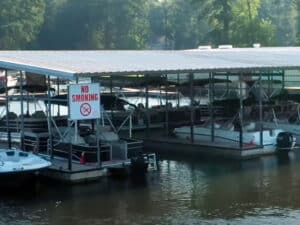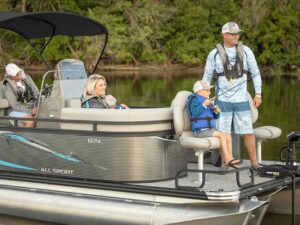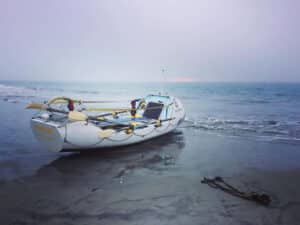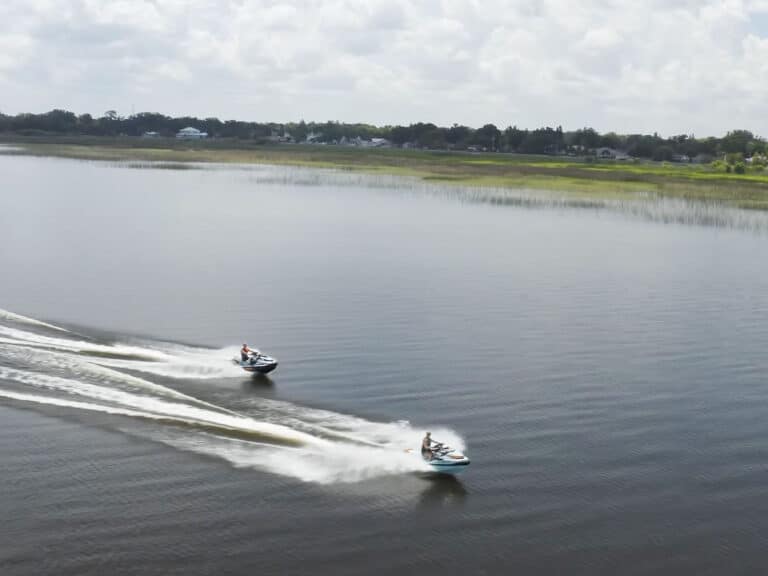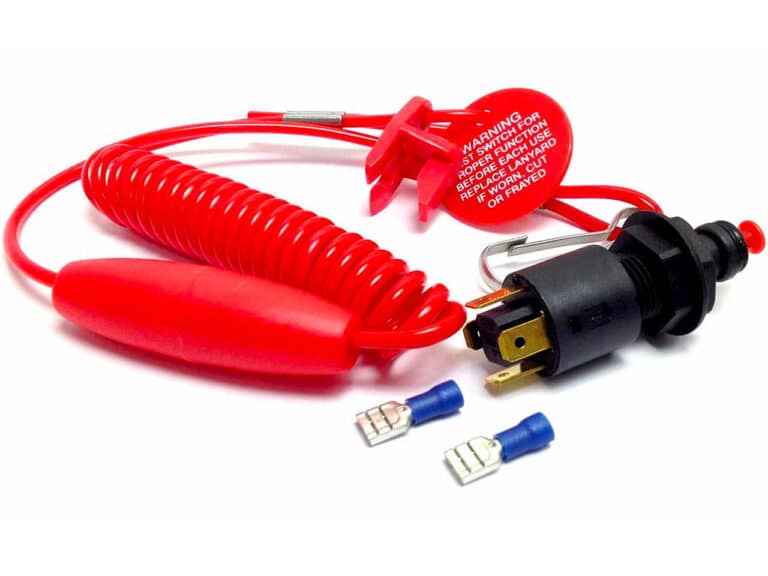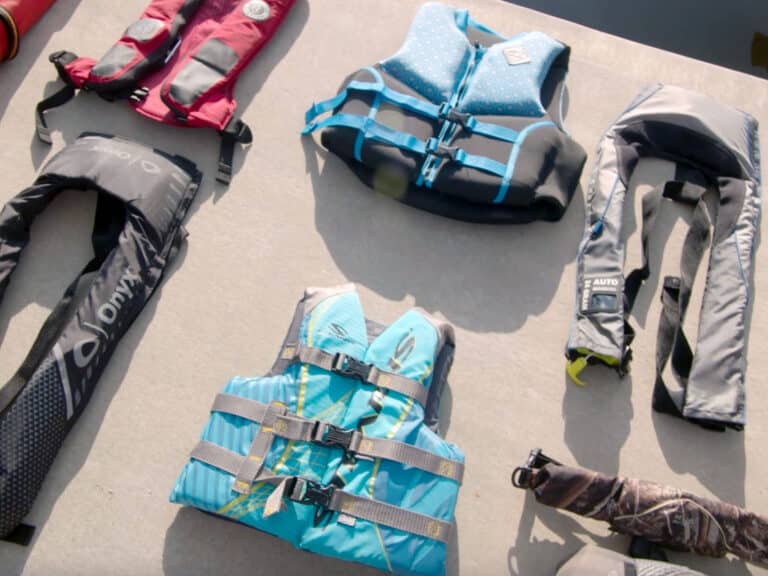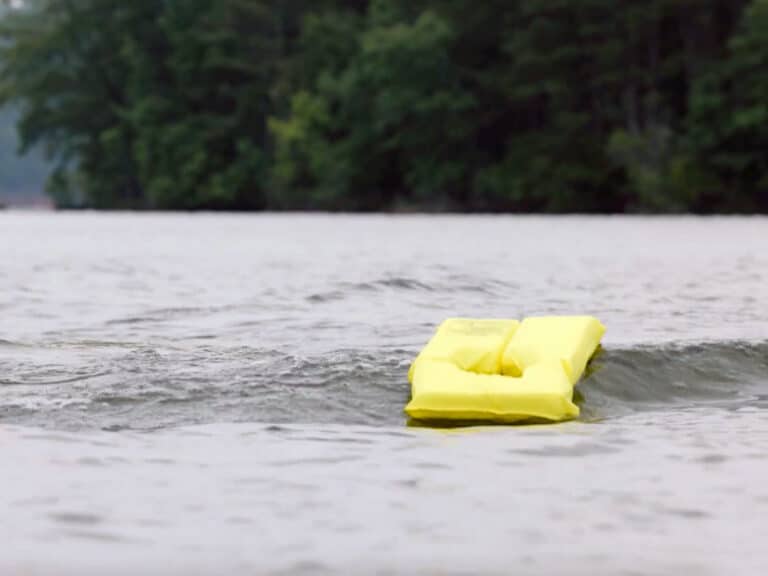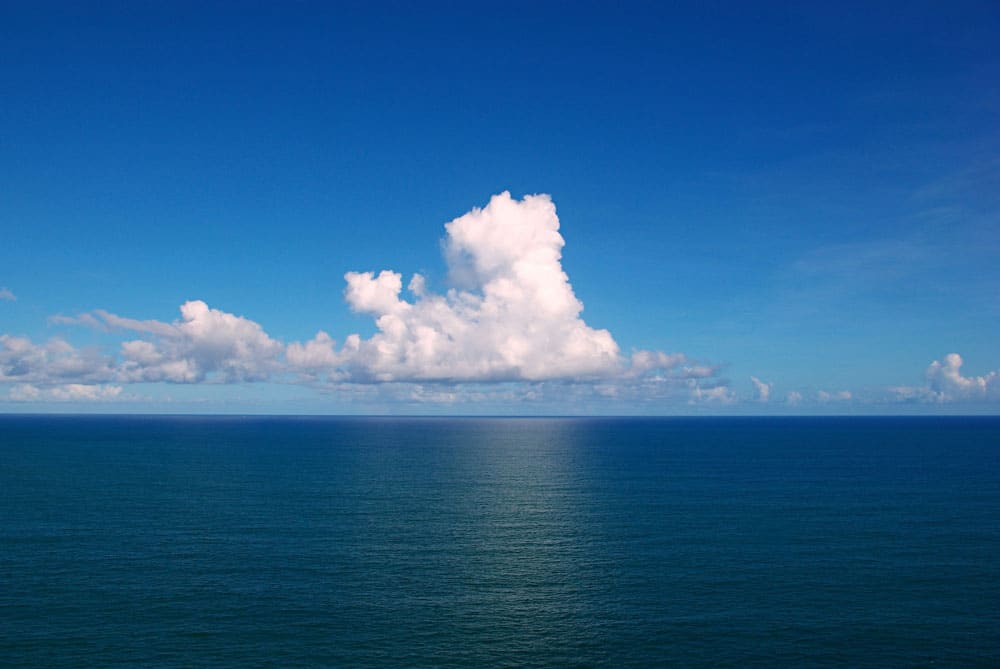
Whether you’re boating in clear daylight or after sunset, it’s important to be on the lookout for potentially dangerous objects in the water. Here are a few tips and terms to help you steer clear of any hazardous debris.
- Flotsam means objects that have been set afloat by nature or set afloat by anyone other than those aboard your vessel. Jetsam means objects that have been jettisoned overboard, usually to decrease weight and prolong the act of sinking. Jetsam doesn’t necessarily float.
- One way to notice flotsam and jetsam at night is by looking for a “black hole” in the water. On a dark night an unlit object will look darker than the water itself, which reflects starlight.
- Fishermen love to find flotsam and jetsam. Many fish, like dolphin, congregate around such floating objects.
- In coastal waters, expect more than normal amounts of flotsam during periods of full moon. The full moon usually brings the biggest tides. The high water “reaches” further up the beach to grab and set afloat anything buoyant, including logs.
- Freshwater boaters should be especially wary of flotsam following a heavy rainfall. Heavy rains cause river and stream levels to rise, pulling fallen trees and and other debris into the water.
- A seiche is a wind- or air-pressure-induced change in lake levels. Boaters on the windward end of a lake under seiche need to be wary about low water exposing debris.
- A log forced to the bottom of a waterway, either during a logging drive or by its own weight after becoming waterlogged, is known as a deadhead. Sometimes these logs rise up and float just below the surface, making them tough to see even in daylight.
- If flotsam suddenly appears in your boat’s path, you should turn first away from it and then toward it. Since a boat steers from the stern’s rudder, turning away from an object under your stem closing will cause the props, gear-cases, or rudder to hit the object. The S turn is the best course of action.
- Mats of weed might not hole your hull, but they can reduce performance and damage your engine when you run through them. Weeds snagged on the gear case or struts can cause cavitation at the props, reducing speed. Suck some weed into your cooling water intakes, and they could block the flow of water, causing your engine to overheat.
- A single-screw lobster-boat is more likely to survive hitting flotsam than a jet-powered picnic boat, a twin-screw, planing sport-fishing boat or a water bike. The traditional lobster-boat features a full keel, which will take the brunt of the blow. The other types rely on the hull alone to keep the water out, even if their propulsion systems survive.
- The feature that prevents rudders from spinning backward into the props should they “fold-over” after striking an object is called the stop. Rudder stops should be standard on all inboard-powered boats.
- If you strike an object hard while underway, you should stop and put the engines in neutral immediately. Assess the damage, if any, by checking the hull and fittings from the inside. If you’ve bent a shaft, you could cause more damage — like losing the shaft — if you just continue to run. If you discover you’ve sustained damage at or just below the waterline, staying on plane to the nearest shore may prevent water from flooding in.
The U.S. Coast Guard is asking all boat owners and operators to help reduce fatalities, injuries, property damage, and associated healthcare costs related to recreational boating accidents by taking personal responsibility for their own safety and the safety of their passengers. Essential steps include: wearing a life jacket at all times and requiring passengers to do the same; never boating under the influence (BUI); successfully completing a boating safety course; and getting a Vessel Safety Check (VSC) annually from local U.S. Coast Guard Auxiliary, United States Power Squadrons(r), or your state boating agency’s Vessel Examiners. The U.S. Coast Guard reminds all boaters to “Boat Responsibly!” For more tips on boating safety, visit www.uscgboating.org.

